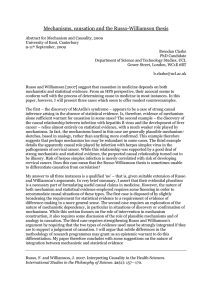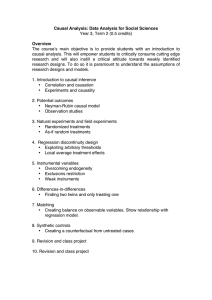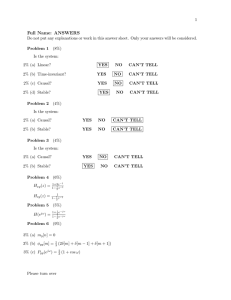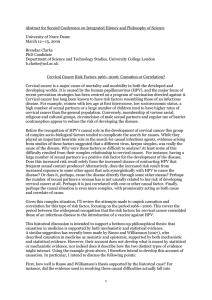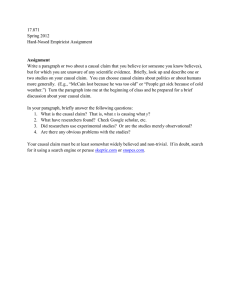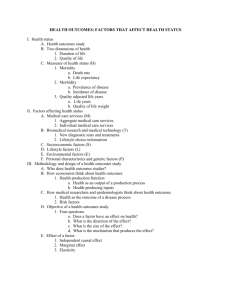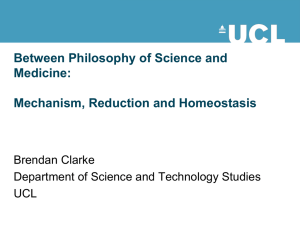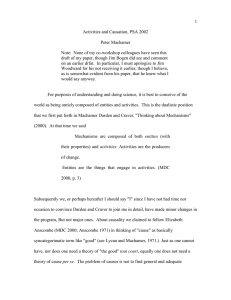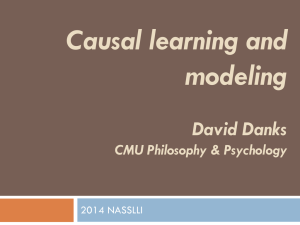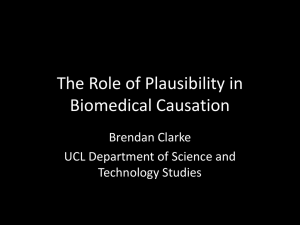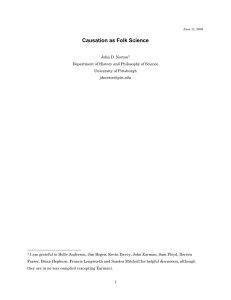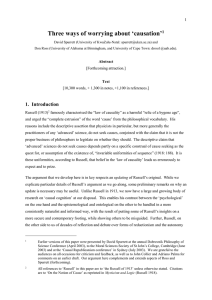Dr Brendan Clarke PhD Candidate UCL Department of Science and Technology Studies
advertisement
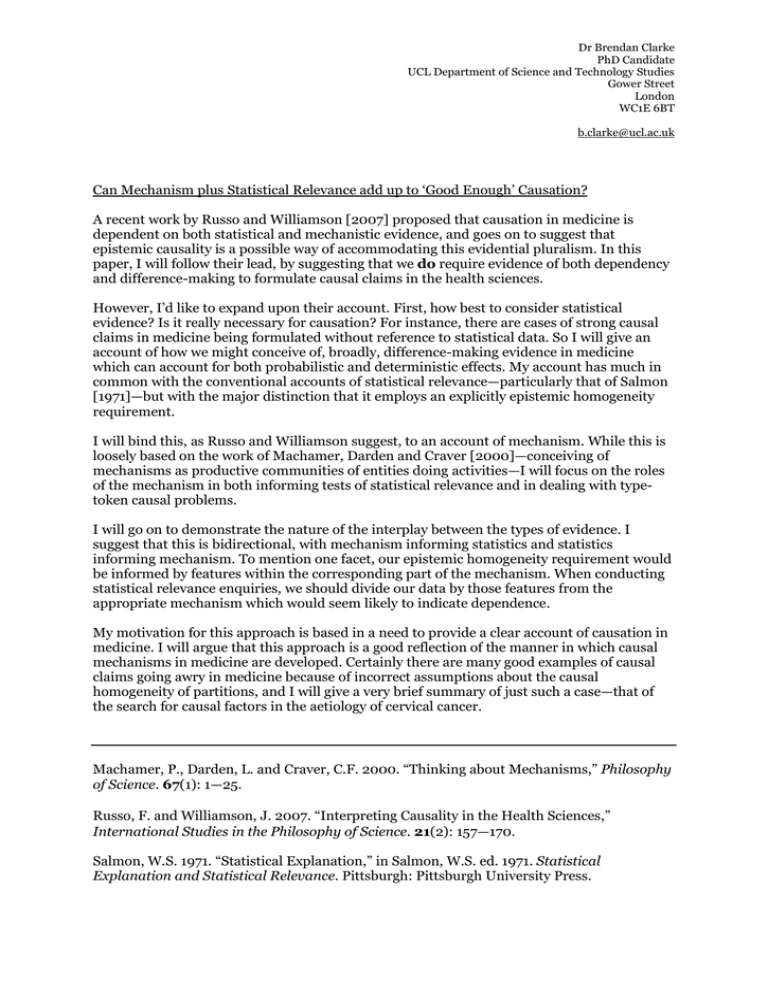
Dr Brendan Clarke PhD Candidate UCL Department of Science and Technology Studies Gower Street London WC1E 6BT b.clarke@ucl.ac.uk Can Mechanism plus Statistical Relevance add up to „Good Enough‟ Causation? A recent work by Russo and Williamson [2007] proposed that causation in medicine is dependent on both statistical and mechanistic evidence, and goes on to suggest that epistemic causality is a possible way of accommodating this evidential pluralism. In this paper, I will follow their lead, by suggesting that we do require evidence of both dependency and difference-making to formulate causal claims in the health sciences. However, I‟d like to expand upon their account. First, how best to consider statistical evidence? Is it really necessary for causation? For instance, there are cases of strong causal claims in medicine being formulated without reference to statistical data. So I will give an account of how we might conceive of, broadly, difference-making evidence in medicine which can account for both probabilistic and deterministic effects. My account has much in common with the conventional accounts of statistical relevance—particularly that of Salmon [1971]—but with the major distinction that it employs an explicitly epistemic homogeneity requirement. I will bind this, as Russo and Williamson suggest, to an account of mechanism. While this is loosely based on the work of Machamer, Darden and Craver [2000]—conceiving of mechanisms as productive communities of entities doing activities—I will focus on the roles of the mechanism in both informing tests of statistical relevance and in dealing with typetoken causal problems. I will go on to demonstrate the nature of the interplay between the types of evidence. I suggest that this is bidirectional, with mechanism informing statistics and statistics informing mechanism. To mention one facet, our epistemic homogeneity requirement would be informed by features within the corresponding part of the mechanism. When conducting statistical relevance enquiries, we should divide our data by those features from the appropriate mechanism which would seem likely to indicate dependence. My motivation for this approach is based in a need to provide a clear account of causation in medicine. I will argue that this approach is a good reflection of the manner in which causal mechanisms in medicine are developed. Certainly there are many good examples of causal claims going awry in medicine because of incorrect assumptions about the causal homogeneity of partitions, and I will give a very brief summary of just such a case—that of the search for causal factors in the aetiology of cervical cancer. Machamer, P., Darden, L. and Craver, C.F. 2000. “Thinking about Mechanisms,” Philosophy of Science. 67(1): 1—25. Russo, F. and Williamson, J. 2007. “Interpreting Causality in the Health Sciences,” International Studies in the Philosophy of Science. 21(2): 157—170. Salmon, W.S. 1971. “Statistical Explanation,” in Salmon, W.S. ed. 1971. Statistical Explanation and Statistical Relevance. Pittsburgh: Pittsburgh University Press.
